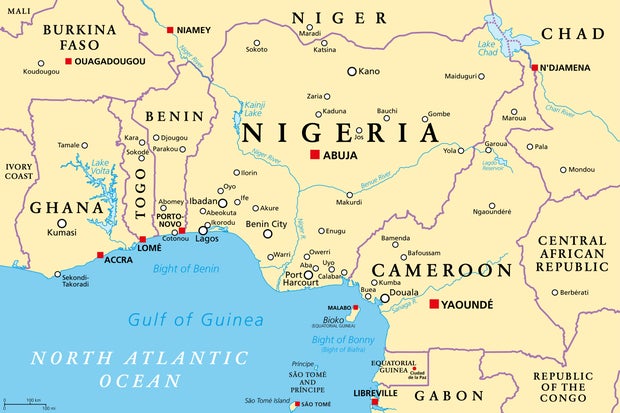Kano, Nigeria – Authorities in the largest city in northern Nigeria have begun evacuating more than 5,000 street children seen as a “security threat” and of growing concern as the economic crisis forces more people to fend for themselves. The Hisbah forces, a regional police force charged with enforcing Islamic law, have carried out midnight raids on parking lots, markets and street corners in the regional capital, Kano, since the beginning of the year, evacuating children while they slept.
“So far, we have cleared the streets of 300 children and transferred them to a camp designated for their rehabilitation,” Hisbah Director General Aba Sufi told AFP. “Their continued living on the streets poses a major social and security threat as they are potential criminal recruits.”
“They are a time bomb that must be urgently defused with tact and care,” Sofi said.
In November, Kano State Governor Abba Kabir Yusuf formed a committee to rid the city of street children, most of whom are boys. Many sleep in the open and do not have access to education or parental care.
Shashank Bengali/MCT/Tribune News Service/Getty
With the highest divorce rate in Nigeria, according to official figures, Kano is facing a significant rise in the number of children from broken families.
The boys are largely left to fend for themselves, wandering the city begging, selling things at traffic lights and looking for scrap metal to sell to get money to feed themselves.
The West African economic powerhouse is facing its worst economic crisis in decades, with inflation rising to 34.6 percent in November, leaving many struggling to get food.
Nigeria has 18.5 million children out of school, with Kano State having 1.9 million, the highest rate in the country, according to the United Nations Children’s Fund (UNICEF) in a 2022 survey.
The Nigeria Multidimensional Poverty Survey 2022 said Kano’s figure represents 39% of the total number of children living in the state.
iStock/Getty
Officials told AFP that many of the children in Kano come from neighboring states.
“Some of them are from Kano, others are from other states,” Hisba Commander Aminu Durawa said. “The first step is to identify them and determine where they come from.”
Some were sent from villages to learn how to read the Qur’an in informal Islamic religious schools called almajiri. Residents said that many Quranic school students begged for food and alms between classes.
Attempts by the authorities and local groups to intervene and support the old Magyar regime have faced opposition from the traditional clergy.
Hisbah police plan to provide “psycho-social” support and counseling to children before registering those who show interest in school, Sufi said, adding that others will be given seed money to start a business of their choice.
Durawa told AFP that the children outside the state will be returned to their homeland after being rehabilitated.
Previous attempts to cleanse the city of street children have failed.
Between 2017 and 2018, the Hisbah evacuated about 26,000 children and reunited them with their parents in Kano and beyond, but they returned to the streets after a calm period, according to Durawa.
During the COVID-19 pandemic, authorities in Kano closed Almajiri schools and transferred pupils to their home states, but they returned when the schools reopened.
“We want to avoid repeating the past experience, which is why we changed the approach by camping and rehabilitating the children before returning them to society,” Sofi said.
https://assets2.cbsnewsstatic.com/hub/i/r/2025/01/10/610af3c4-8b69-4e2c-9ede-b6c05528ba87/thumbnail/1200×630/f6c87086d18bee81e9ce23c216e2c696/kano-nigeria-112842784.jpg?v=c32e88638f4c371ec40100fff0bc2158
Source link

